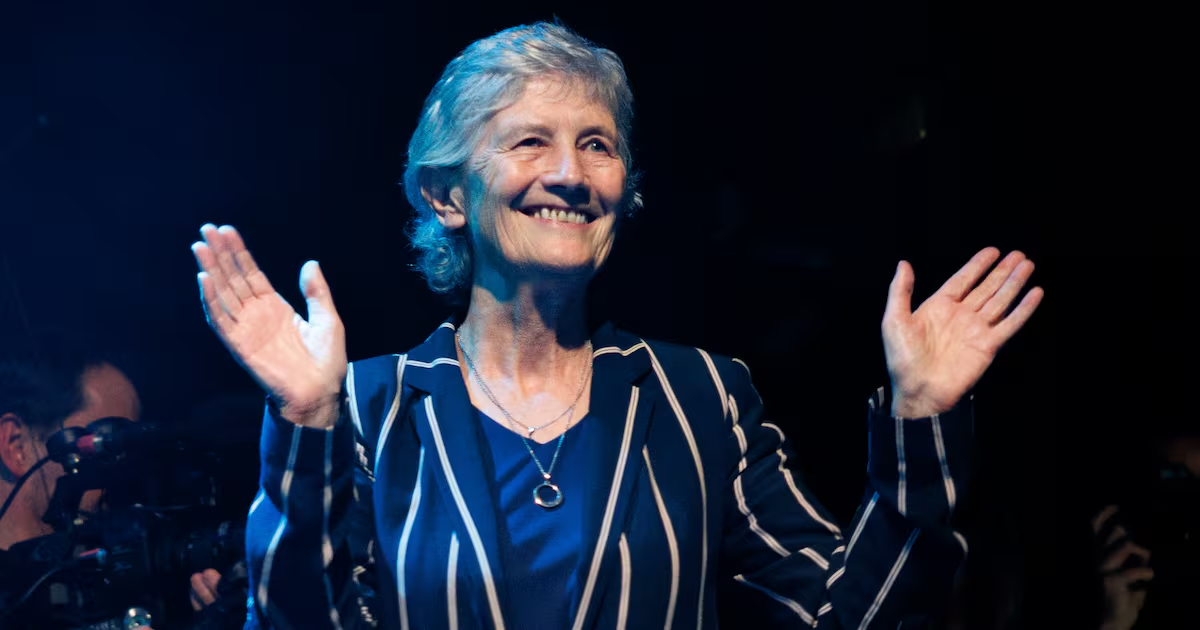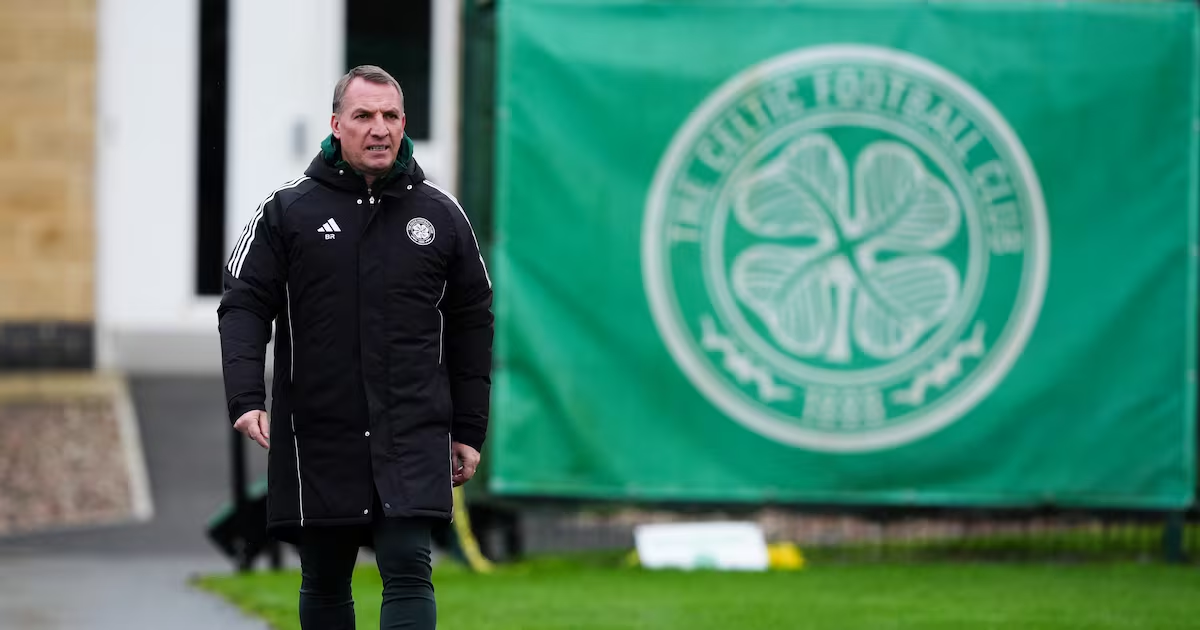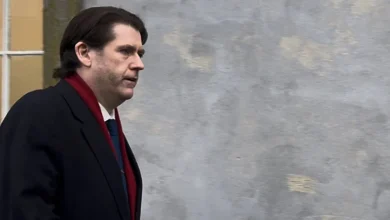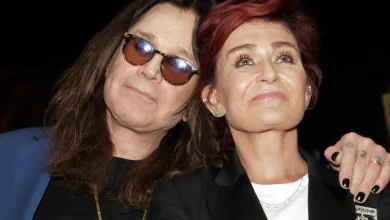The Debate: Should Catherine Connolly make Irish the working language of the Áras?

Mollie Guidera: Yes. If there is anywhere Irish should be spoken and cherished, it is in the Áras
Ireland is finally taking ownership of its native tongue. We are acknowledging that our cultural identity is fite fuaite – interwoven with the words we use and the world they shape. Making Irish the working language of the Áras, as our president-elect Catherine Connolly has said she wants to do, signals a country stepping forward from its complicated past, asserting leadership and self-belief. It reflects what Ireland aspires to be, not what it was once forced to become.
During the recent election campaign, many voters said Connolly’s knowledge and love of Irish were among the chief reasons they voted for her. Learning and using the language is a worthwhile, enjoyable challenge, which more and more people are undertaking. If anyone feels that the use of Irish somehow excludes them because they don’t speak it, the message should be “is fiú agus is féidir” – it’s worth it and you can do it. President Connolly spoke during the election campaign about returning to learn Irish as an adult and the satisfaction of doing so.
If there is anywhere Irish should be spoken and cherished, it is in the Áras. The use of our first official language in the home of our first citizen is a concrete and meaningful way in which the language can be promoted and afforded proper respect. When foreign dignitaries are received by our head of State, they will be welcomed not just by our symbols and our flag, but by our language – guth na ndaoine, the voice of the Irish people – and not just in a symbolic way, but they will hear it in use as a working language. They would see that communication in Irish is consistent with a modern, global Ireland.
Both English and Irish belong to us, but only one of them is uniquely ours. Irish is not only a living vessel of our culture and history, but an official and working language of the EU. If anything, visitors to the Áras ought to be more inclined to question the absence of the Irish language than its presence in the home of the Irish president. Even the word “Áras” is always used – an example of the quiet power of a language reclaiming its place.
The fact that our head of state working in our own native tongue could even be seen as controversial perpetuates the enduring myth that Irish is “difficult”. What is truly difficult is our colonised relationship with the language. But more and more of us are moving from bewilderment to bilingualism, from náire to gáire (shame to laughter), creating opportunities to use the language and making learning it joyful, effective and relevant.
As president, Connolly can ensure that the Áras fosters an inclusive, supportive environment where everyone – staff, guests and citizens – can interact with our native tongue. Irish connects us and its use offers psychological, academic, spiritual and social benefits. Making an Ghaeilge the main language of the Áras will be both a symbolic victory and a practical triumph – creating a visible, audible space for Irish in national life and respecting the electorate who gave president-elect Connolly a mandate based, at least partly, on her use and love of Irish.
As an Independent candidate with an independent mind, Ireland’s tenth president follows in the footsteps of our first, Douglas Hyde, who urged that every Irish-feeling person “should encourage the use of Irish in his own home”. Hyde believed that a nation must first recover its soul – its language, culture and sense of self – before it can truly govern itself. And Patrick Pearse understood the same truth: “The revival of the language is part of the struggle for freedom. When we speak the old tongue again, Ireland will be herself once more.”
Mollie Guidera is an Irish language educator, author of The Gaeilge Guide, and founder of Irish with Mollie (www.irishwithmollie.com)
Scroll to the bottom for an Irish language translate of this contribution
Aidan Doyle: No. On a practical level, it’s hard to see how Irish could be the working language of the Áras
When pressed by an interviewer on Raidió na Gaeltachta about the idea that Irish could become the working language of Áras an Uachtaráin, Catherine Connolly said she was dóchasach – or hopeful – that she could bring Irish in from the margins. This could mean two lines of action. The first, less radical one, would merely continue with the symbolic use of Irish on formal occasions, a practice we are long accustomed to. The second would mean demanding proficiency in Irish from future employees in the Áras. What might this second policy look like?
The idea is not new. In the period 1922-1970, the State tried to ensure that public servants had a good command of Irish and there was compulsory Gaelicisation of the education system. What is new is that the proposal is coming from somebody on the left of the political field.
Given what Connolly stands for, it is a bold and imaginative move for her to embrace one of the central policies of De Valera’s Ireland, one which has long been abandoned by most Irish people. However, the Ireland of 2025 is less deferential and considerably more litigious than that of the 1930s. There would almost certainly be legal challenges to a policy that favoured Irish speakers over others.
Let us assume, however, that this policy could be implemented in an acceptable manner, and that the people running the presidential residence agreed to speak Irish. How would the Áras staff operate in the first official language? Among those who identify as Irish speakers, a wide range of linguistic abilities is exhibited. At one end of the spectrum there are older Gaeltacht speakers, more comfortable in Irish than English, and at the other, learners who can’t always achieve the command of Irish they would like to.
Any language teacher will tell you that getting a group of students of varying abilities to communicate with each other is extremely challenging. I find it hard to imagine how the various employees, from the press secretary to the gardener, could effectively carry out their daily tasks in Irish when, for many of them, it would not be their mother tongue.
Even first-language speakers of Irish are at a loss when it comes to modern terminology. Many years ago, on my first trip to the Gaeltacht, I stayed in an old house with fairly rudimentary plumbing. One morning we awoke to find that the toilet cistern was overflowing. The man of the house called in his neighbour and the two set about trying to fix the toilet.
I understood very little of their exchange, apart from one sentence that kept recurring: Cuir íle ar do ballcock! My somewhat priggish linguistic sensibilities were horrified at the intrusion of the English word into the discourse, but it did the trick. Oil was poured on the troubled waters of the cistern and they ceased to overflow. The point is that when faced with an emergency in real life, we don’t have the leisure to agonise over what the correct Irish term for ballcock is, we simply work with what we have.
In politics, as in plumbing, one cannot be too fastidious. Managing Áras an Uachtaráin must be a daunting task in any language. It may be that president-elect Connolly will decide that if her new home is to be run efficiently, she will have to modify her plans for making Irish the main means of communication. In such a case, she may have to allow a certain amount of English in. But if she sticks to her guns, Ireland could be in for an interesting presidency, at least on the domestic front. We might all be putting íle on our ballcock in the months ahead.
Aidan Doyle is a lecturer in the Department of Irish at UCC
Mollie Guidera: Tá. Má tá aon áit ann ar ceart an Ghaeilge a labhairt agus a chothú, is é an tÁras é
Faoi dheireadh, tá muidne Éireannaigh ag glacadh seilbh ar ár dteanga dhúchais féin, ár dteanga náisiúnta agus ár gcéad teanga oifigiúil, agus ag admháil go bhfuil ár bhféiniúlacht chultúrtha fite fuaite leis na focail a labhraímid agus leis an saol a mhúnlaíonn siad. Léiríonn úsáid na Gaeilge san Áras tír atá ag céimniú chun cinn óna stair chasta, ag dearbhú ceannaireachta agus muiníne inti féin. Léiríonn sé an Éire is mian linn a bheith againn seachas an Éire a brúdh orainn san am atá thart.
Le linn an toghcháin le déanaí, dúirt go leor vótálaithe gur i measc na bpríomhchúiseanna ar vótáil siad ar son Catherine Connolly bhí a cuid eolais agus a grá don Ghaeilge. Is dúshlán fiúntach agus taitneamhach í an teanga a fhoghlaim agus a úsáid, rud a bhfuil níos mó daoine ag tabhairt faoi anois ná riamh. Má mhothaíonn duine ar bith go gcuireann úsáid na Gaeilge as dóibh mar nach labhraíonn siad í, cuimhnímis: is fiú agus is féidir. Labhair an tUachtarán Connolly féin le linn a feachtais toghcháin faoin taithí shásúil a bhí aici nuair a d’fhill sí ar an nGaeilge mar dhuine fásta chun í a fhoghlaim arís.
Má tá aon áit ann ar ceart an Ghaeilge a labhairt agus a chothú, is é an tÁras é. Is bealach nithiúil fóntach é úsáid ár gcéad teanga oifigiúla i dteach ár gcéad saoránaigh chun an teanga a chur chun cinn agus chun an meas cuí a thabhairt di. Nuair a ghlacfaidh ár gceann stáit le toscaireachtaí eachtracha, cuirfear fáilte rompu ní hamháin lenár siombailí agus lenár mbratach, ach lenár dteanga féin freisin – guth na ndaoine, guth beo mhuintir na hÉireann. Tuigfidh siad ansin nach bhfuil úsáid na Gaeilge ag teacht salach ar Éirinn nua-aimseartha dhomhanda ar aon slí. Tá an Béarla agus an Ghaeilge againn araon, ach is linne ceann acu go fírinneach.
Ní hamháin gur soitheach beo ár gcultúir agus ár staire í an Ghaeilge, ach is teanga oifigiúil agus oibre de chuid an Aontais Eorpaigh í freisin. Is é is dóichí go gceisteodh cuairteoirí ar an Áras easpa na teanga i dteach Uachtarán na hÉireann ná a láithreacht. Fiú an focal “Áras” féin a úsáidtear i gcónaí – focal a léiríonn cumhacht chiúin teanga atá ag éileamh a háite ar ais.
An smaoineamh gur ábhar conspóide é ár gceann stáit a bheith ag obair inár dteanga dhúchais féin, buanaíonn sé sin an miotas leanúnach go bhfuil an Ghaeilge “deacair”.
Is é atá fíordheacair ná ár ngaol coilínithe leis an teanga. Táimid ag gluaiseacht ón mearbhall go dtí an dátheangachas, ó náire go gáire, ag cruthú deiseanna chun an teanga a úsáid agus ag déanamh na foghlama sona, éifeachtach agus inrochtana.
Is féidir leis an Uachtarán Connolly a chinntiú go gcothóidh an tÁras timpeallacht
chuimsitheach thacúil ina mbeidh gach duine – foireann, aíonna agus saoránaigh araon – in ann nascadh lenár dteanga dhúchais. Ceanglaíonn an Ghaeilge muid lena chéile, ag tairiscint buntáistí soiléire síceolaíocha, acadúla, spioradálta agus sóisialta. Is teanga na daonnachta, an aontais, an chineáltais agus an chomhionannais í, teanga a sheasann leis na luachanna atá tábhachtach dúinn. An Ghaeilge agus í mar phríomhtheanga an Árais, is bua siombalach agus éacht praiticiúil é sin in éineacht. Cruthóidh sé spás ina mbeidh an Ghaeilge le feiceáil agus le cloisteáil i saol na tíre, agus tugann sé urraim dóibh siúd a bhronn ar an Uachtarán Connolly mandáid atá bunaithe, ar a laghad go páirteach, ar an úsáid a bhaineann sí as an nGaeilge agus ar a grá di.
Mar iarrthóir neamhspleách le hintinn neamhspleách, leanfaidh deichiú hUachtarán na hÉireann lorg ár gcéad Uachtaráin, Dubhghlas de hÍde, a d’áitigh ar gach duine a mhothaíonn gur Éireannach é “an Ghaeilge a spreagadh ina theach féin”.
Chreid Hyde gur gá don náisiún a anam féin a ghnóthú ar dtús – a theanga, a chultúr, tuiscint ar a nádúr féin – sula bhféadfadh sé fíor-rialú a dhéanamh air féin. Agus thuig Pádraig Mac Piarais, a shamhlaigh Éire shaor, an fhírinne chéanna:
“Is cuid den streachailt ar son na saoirse athbheochan na teanga. Nuair a labhraítear an tseanteanga arís, beidh Éire ina hÉirinn féin athuair.”





